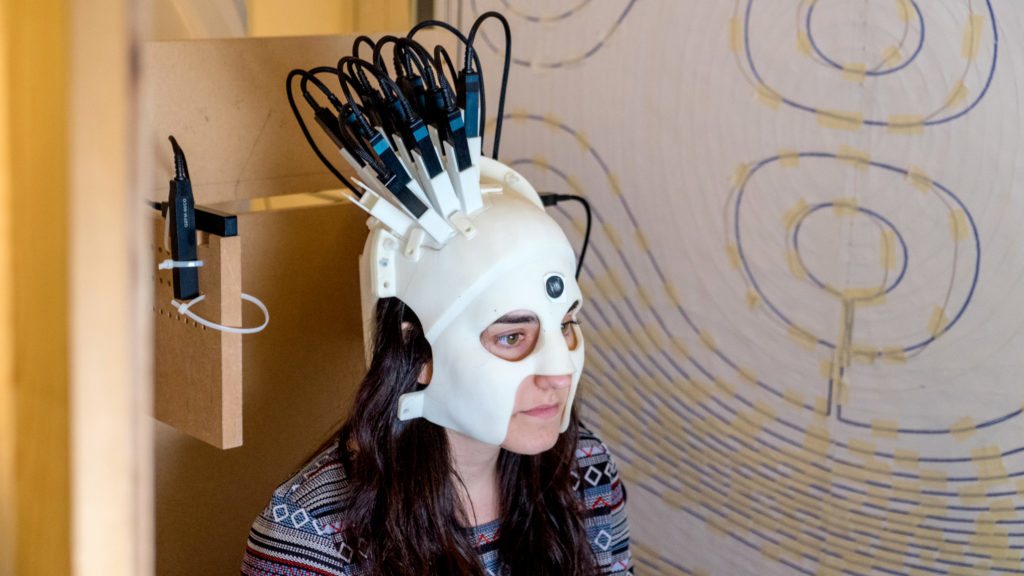WEEK OF
March 19th
Members of the disability rights group ADAPT protested outside the home of U.S. Food and Drug Administration (FDA) commissioner Scott Gottlieb for several days, calling for a ban on the use of electric shock devices at the Judge Rotenberg Education Center in Canton, Massachusetts. The center is the sole U.S. clinic using the devices on residents for aggressive or self-injurious behaviors, The Mighty reported 14 March.
According to their Twitter feed, the ADAPT protesters received a 24-hour warning on 20 March that they would be removed from their protest site. So they relocated to FDA headquarters in Silver Spring, Maryland. The protesters later tweeted that some members of the group were arrested while blocking an intersection outside the FDA building but were then released.
In a 17 March examination of false health claims, BuzzFeed News reported on the leader of a “poop cult” on Facebook. Jillian Mai Thi Epperly is proud to champion the health benefits of a cabbage slurry she calls Jilly Juice, which can bring on bouts of diarrhea. She’s even claimed the juice could prevent autism and obesity in children. BuzzFeed News describes her claims as “stark absurdity.”
The new autism romance movie “Keep the Change” is a “landmark motion picture,” according to a 15 March review in The New York Times. Its lead characters are on the spectrum and the actors playing them are, too, embodying on screen the self-advocacy slogan “nothing about us without us.”
The actors playing the leads in the full-length film are Brandon Polansky and Samantha Elisofon, who also both appeared in a short version of the movie in 2013.
In a different take on “nothing about us without us,” scientists and educators are calling for global autism research to directly involve local researchers and clinicians. Two of the investigators, Zemi Yenus and Rosa Hoekstra, work with populations in Ethiopia. Writing 15 March in BJPsych International, they and their colleagues say that with the overrepresentation of white, wealthy people in autism research, local collaborations in countries such as Ethiopia are critical to ensuring cultural understanding.
In December, Spectrum highlighted Yenus and Hoekstra’s efforts to improve autism diagnosis and care in Ethiopia.
In a comparison of postmortem brains of people with and without autism, researchers have found differences in neuron counts in the amygdala, the brain’s emotion processor. Findings published 20 March in the Proceedings of the National Academy of Sciences show that neuron number in the amygdala increases over time in people without autism but declines in those on the spectrum after an “initial excess” of the cells.
Researchers evaluating 29 factors potentially associated with autism have found that medications that women take while pregnant can be more relevant than the conditions they treat. Maternal epilepsy, infection, diabetes or mental illness is not tied to a child’s autism diagnosis, but taking medication for one of these conditions during pregnancy is. The investigators published their findings 14 March in Pediatric Research.
An initiative to bank detailed health data for 1 million people is weathering criticism for being too slow and expensive. The U.S. Congress authorized $1.455 billion for 10 years for the National Institutes of Health project, called the All of Us Research Program. But in the three years since it was unveiled, little has been accomplished, The New York Times reported 19 March.
Two major healthcare providers returned their project-related grant money after becoming frustrated with the project’s pace. One of the providers, Kaiser Permanente, is developing its own biobank, the Times reported.
People with mental disabilities are at greater risk of experiencing violence than are those with physical disabilities, researchers reported 15 March in BMC Public Health. There are also gender differences: Men with disabilities are more likely to report experiencing physical violence, whereas disabled women more often report sexual violence.
Robert Redfield, a virologist and doctor, has been tapped to head the U.S. Centers for Disease Control and Prevention. Alex Azar, secretary of Health and Human Services, announced the choice 21 March, The Washington Post reported. The appointment was not unexpected but has drawn criticism.
Redfield was at the center of AIDS-related controversies in the 1980s, the newspaper reported. He supported mandatory HIV screening of members of the military; recruits who tested positive were not allowed to serve. In the early 1990s, he also advocated unsuccessfully for mandatory testing of healthcare professionals and weathered accusations of misrepresenting data about a failed AIDS vaccine.
A technique called magnetoencephalography helps clinicians to track communication between neurons in real time, and to map the brain before surgery to treat epilepsy. But current scanners are like gigantic versions of old-school salon hairdryers and require stillness, which is particularly difficult for children. Researchers are working on a lighter, more child-friendly version that fits like a helmet, STAT reported 21 March. It’s still not ready for clinical use and currently looks like a horror movie mask, so aesthetic as well as technical tweaks are in the offing.

Courtesy of Wellcome
Do you have a new paper coming out? Are you making a career move? Did you see a study or news story that you want to share? Send your news tips to [email protected].
By joining the discussion, you agree to our privacy policy.